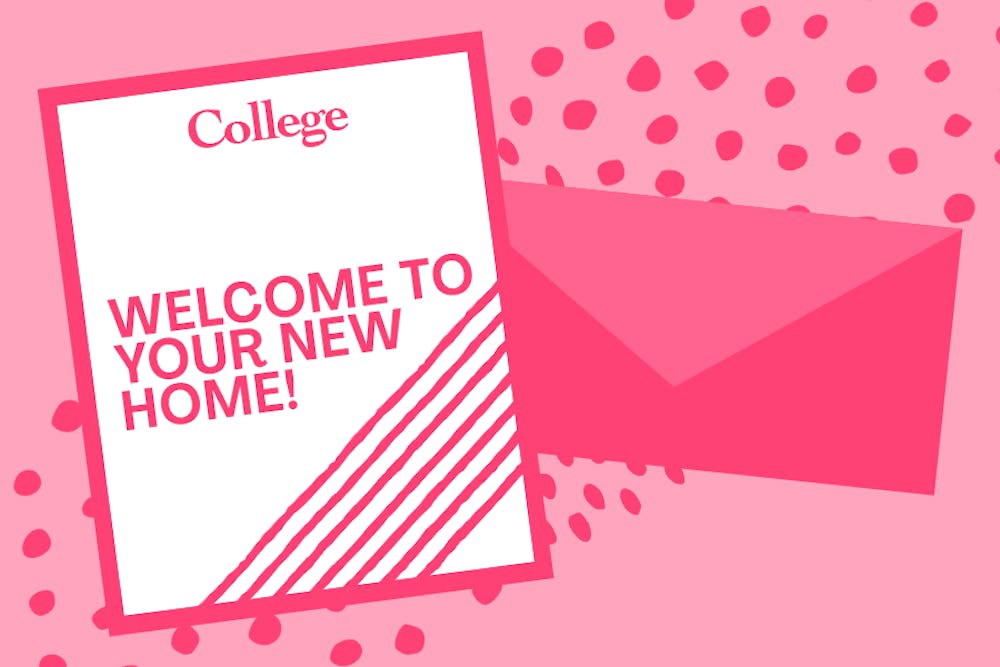It’s that time of the year again—November means Thanksgiving, daylight savings, and the return of Mariah Carey’s Christmas album. For the unlucky high school seniors, it marks the beginning of the dreaded college application season. It might feel like a lifetime since you had to submit a college essay, but I think it’s time we revisit the age–old question of "Why Penn?" In fact, why go to college at all?
University life is deeply embedded in American culture, and the college experience is uniquely American. In the United States, higher education offers an extension to adolescence: a rite of passage to debauchery that includes partying, drinking, sex, and fraternities, but also a cocoon that fosters self–discovery, opportunity, friendship, and, most importantly, walkable communities.
Who perpetuates this cultural aspiration? Look no further than out west. Oversaturated with the high school–to–college genre of teen movies, Hollywood has notoriously played a major role in promulgating the college experience. Since the '50s, fascination with collegiate life has proliferated. Every magazine had a back–to–college issue covering style, fashion, and slang. Soon enough, Joe College and Betty Co–ed became the young and carefree models of American spirit and potential.
Today, the college spirit manifests itself in our entertainment. As college app season commences, like clockwork, another Netflix Original teen romcom gets released. Notable ones include To All the Boys I’ve Loved Before, The Kissing Booth, The Perfect Date, Tall Girl, and Never Have I Ever. The presence of the college admission process has undoubtedly infiltrated almost all teen romance films, most of which follow high school couples who are forced to either part ways or compromise on the same university.
Film & TV has never shied away from falsifying the reality of college admissions, with leading characters often gaining admission to top schools. Columbia has the characters of Gossip Girl. NYU has Lady Bird. UC Berkeley got Troy Bolton, and Stanford Gabriella Montez. Austin Ames from A Cinderella Story somehow got into Princeton. Andy Bernard went to Cornell. Harvard has Legally Blonde, The Social Network, Good Will Hunting, and even The Kissing Booth 2. Spencer from Pretty Little Liars dreams of going to Penn.
Legally Blonde shows us that all Elle Woods had to do to get into Harvard Law School was submit a video of herself in a bikini as her admissions essay. While a club can be a valuable experience of your college life, the characters of Pitch Perfect are completely consumed by the a capella music group, creating an ecosystem where academics and other commitments cease to exist. Getting into a Greek society is, according to Animal House and its many descendants, the most important thing one can do in college.
These stories romanticize what it’s like to get in and be in college; not many of us can resist the promise of moving away from home for the first time, or the allure of swilling booze at a frat party, rushing at sorority houses, or decorating a new dorm with fairy lights. But what colleges also historically promised their students is a rite of passage into the prestige of the American upper–middle class.
Looking back at the past academic year, the pandemic has forced us to confront the real motivation behind acquiring a college education. Students had to ask themselves, "is a college education online even a college education at all?" The choice exposed a long–standing disconnect within our higher education system. Unsurprisingly, for the eight percent that decided to take a gap year last year, the curriculum alone seemed insufficient.
It didn’t take the pandemic to reveal that American colleges exist to sell the college experience and not the education. For more than a century, a four–year college degree was the single path to attaining the American dream. Now, going to college means bearing an unimaginable sum of debt. If you truly wanted an education, you would turn to faster, cheaper, specialized credentials closely aligned with the labor market.
For example, companies like Google are launching programs that certify vocational competence and lead to well–paying tech jobs in or outside their companies. In August, Google announced scholarships for 100,000 students for a six–month online certificate. These certificates, under Google’s screening, will be treated as the equivalent of a four–year degree. We can already see the narrative shift in Booksmart, where upon graduating, a character from the protagonist’s high school announces that he will be interning at Google (instead of going to college).
As companies start to launch their own credentials, traditional colleges will no longer be able to monopolize higher education (or the plot of teen rom–coms). Perhaps then we will no longer conflate an actual education with a romanticized rite of passage.
So, what brings you here, if not the Ivy League education?

